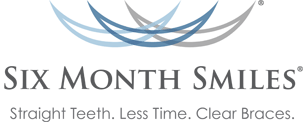Facial Trauma Treatment in Silver Spring & Hyattsville, MD
As every parent knows only too well, accidents can always happen, and no accident is as frightening is a facial injury. Facial trauma can come from a variety of sources and can be a very traumatizing experience. Thus, as Dr. Allen Gotora from Stellar Dental in Maryland explains, knowing some basic information about facial trauma as well as some of the common causes of facial injuries can help you the next time you or your family face an emergency.
What is facial trauma?
To begin with, it helps to roughly define the types of injuries covered under facial trauma. Most generically, facial trauma includes damages done to the jaw, mouth, and rest of the face. It is, however, distinctive from a head injury (which is an injury in the skull or brain).
So, what does that mean for you? It means that if you or your family ever experience something that’s on the following list, you’ll know you’re dealing with facial trauma. The most common forms of facial trauma include:
-
Facial lacerations:
Facial lacerations, though they may bleed more than you might expect, are generally considered one of the milder facial traumas. After all, everyone’s probably cut themselves after a fall at some point, and injuries like these need nothing more than appropriate home care. If a laceration bleeds profusely or doesn’t stop bleeding, though, you should visit the emergency room immediately to get it checked out.
-
Intraoral lacerations:
Facial lacerations are cuts on the outside of the face, but intraoral lacerations are cuts on the inner cheek or gums. Luckily, they tend to be just as harmless, although they may take longer to heal (since the mouth never dries out enough for the cuts to close quickly). Again, these lacerations are only big problems if they don’t stop bleeding on their own. Rather than visiting the ER, though, you may want to consult with a dentist like Dr. Gotora instead.
-
Avulsed teeth:
Another dentist-related type of facial trauma is an avulsed (or knocked out) tooth. Surprisingly, avulsion may happen more often than you might imagine and knowing how to respond to it is crucial. If an avulsed tooth is replaced within half an hour of the accident, the chances of a full recovery are much higher. Thus, if you or a family member ever accidentally knock out a tooth, call your dentist immediately to get instructions on how to proceed.
-
Fractures in the jaws:
Other severe types of facial trauma exist as well. For example, fractured jaws (either upper or lower) are also emergency situations that require immediate response. Fortunately, it takes quite a bit of force to cause fractures, meaning that they are far less common than other types of facial trauma. That does mean, though, that they can have much more far-ranging consequences. You should visit the ER immediately if you think your jaw has been fractured.
-
Fractures in the facial bones (such as the cheek, nose, or even the eye socket):
In the same way, hard blows can cause fractures to the other facial bones. Depending on where the force is applied, that could mean problems in different areas of the face — the cheekbones, nose, or even the eye socket could be affected. Again, these sorts of fractures are emergency situations that require immediate medical attention.
What kinds of activities could cause facial trauma to occur?
So, how can you avoid facial trauma? The short answer is that it can be difficult. After all, no one tries to intentionally fall and break something. When emergencies do happen, they are usually unexpected. However, there are certain activities that may put you and your family more at risk. The most common causes of facial trauma include:
- Contact sports;
- Violence;
- Accidental falls; and,
- Motor vehicle collisions.
Again, we cannot stress the point enough — if you ever experience severe facial trauma, you need to visit a medical professional as soon as possible. With facial injuries (as with all injuries), response time is key, and the sooner you get seen, the more likely you’ll make a full recovery.
That being said, if you ever experience a tooth-related emergency in Maryland, you should contact Dr. Allen Gotora from Stellar Dental. Dr. Gotora is always open to helping emergency patients receive the emergency and follow-up care they need. Just call (301) 754-1900 or visit the website to book your appointment today!





